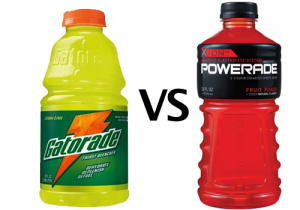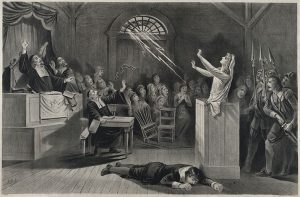The Point closes for second semester or longer

February 3, 2015
After Congress passed the Healthy, Hunger-Free Kids Act, students didn’t know they already missed The Point.
Now they’ll understand once the retail store closes for the next semester.
To further authorize the act and have schools adjust gradually, Congress continually enforces new editions of the Smart Snack Rule. This allows the United States Department of Agriculture to create solutions for meal programs existing outside the federally supported cafeteria, such as vending machines, fundraisers, and stores.
“The changes to the national school meal program provided for the meal to be food based rather than nutrient based,” Pamela Tsakalos, Davis School District Nutrition Services Director, said in an email.
Tsakalos explained the requirement of having one item from each of the five MyPlate groups present in every meal, as long as the school sold the food during the school day on campus. Two hopes for these regulations, according to the Utah State Office of Education, is scholarly success and better eating habits.
“Research shows,” the USOE “Smart Snacks with MyPlate” pamphlet read, “students who eat well learn and behave better at school, helping them succeed. Now, healthy snacks will be available throughout the school day.”
Attempting to find food under the restrictions yet still attractive to students limited the completing of the retail class’s objectives; the profit margin has also decreased as a result. Thus, only four of Davis County school stores remain open since the Healthy, Hunger-Free Kids Act’s passing in 2010, soon to be three after The Point shuts its doors.
“It is unfortunate to see these stores close,” Holly Handy, head of the Davis School District CTE Business and Marketing department, said in an email. “I wouldn’t be surprised if we have any stores open next year.”
Instead of talking to government officials, websites allow stores to find standard-meeting products. Food must now meet calorie, fat, sodium, and sugar requirements; such items, Business and Marketing teacher Mr. McCauley speculates, will attract fewer students.
“It became a point where they were so restrictive on what we offer that we wouldn’t be serving students,” McCauley said. “As you might guess, most of the things they don’t want you to have are the things that kids want to eat. If you drop down the number of customers that much, it becomes less of an experience.”
Students are provided with safety when they shop for food at school, limiting the causes of property damage, injury and death due to vehicular crashes. According to The Centers for Disease Control and Prevention, “motor vehicle crashes are the leading cause of death for U.S. teens.” In a survey of 30 student customers at The Point, all said they would drive off campus for food instead of using other alternative sources, such as home lunch and the school cafeteria, when the store closed.
“With a student body the size of ours, we (can’t) feed that many kids in the cafeteria,” former principal Dee Burton said in Taylor Rogers’s story on The Point’s orange trailer food alternative. “The trailer was intended to keep kids on campus and not leave.”
Losing the average 120-150 daily customers out of the approximate total of 2,500 students became less worthwhile, so The Davis Marketing Group gave the store to the Functional Skills class to facilitate on A days with a healthier menu. The latter group doesn’t need as much profit as the former for competitions and curriculum use, but the Marketing Group must find another alternative unrestricted by the government.
“I’m not convinced that, with all of the challenges we face in education, we should be spending a lot of our time as a government coming in and telling students what to have for lunch,” McCauley said. “These are the same kids that are filling out mission papers, driving cars, having concealed carrying permits, getting engaged, and enrolling in college, and we’re telling them ‘no, that Chick-fil-A sandwich is too fattening for you.’”
Curriculum experiences taught marketing, advertising and accounting. The stores posed as a lab for retail students to put what they learned into action.
“I’ve learned more about business more than I thought I would,” Kincade Stevenson, a retail student. “Obviously, I can’t stop it from closing, but it was good to have it while it was here.”
Teachers also found The Point convenient when they had to return to work.
“It’s time effective. I can run down quick and grab some food,” Mr. Talley, Language Arts teacher, said. “It would probably change the way my lunch is: I’ll have to go out and get some lunch; or start bringing my own lunch, which I’m not very good at.”
Federal and state governments aspire to improve test scores and health for students, but closing the stores puts teenagers in danger and limits opportunities for marketing and business classes. As long as the laws stay open, The Point remains closed.



























